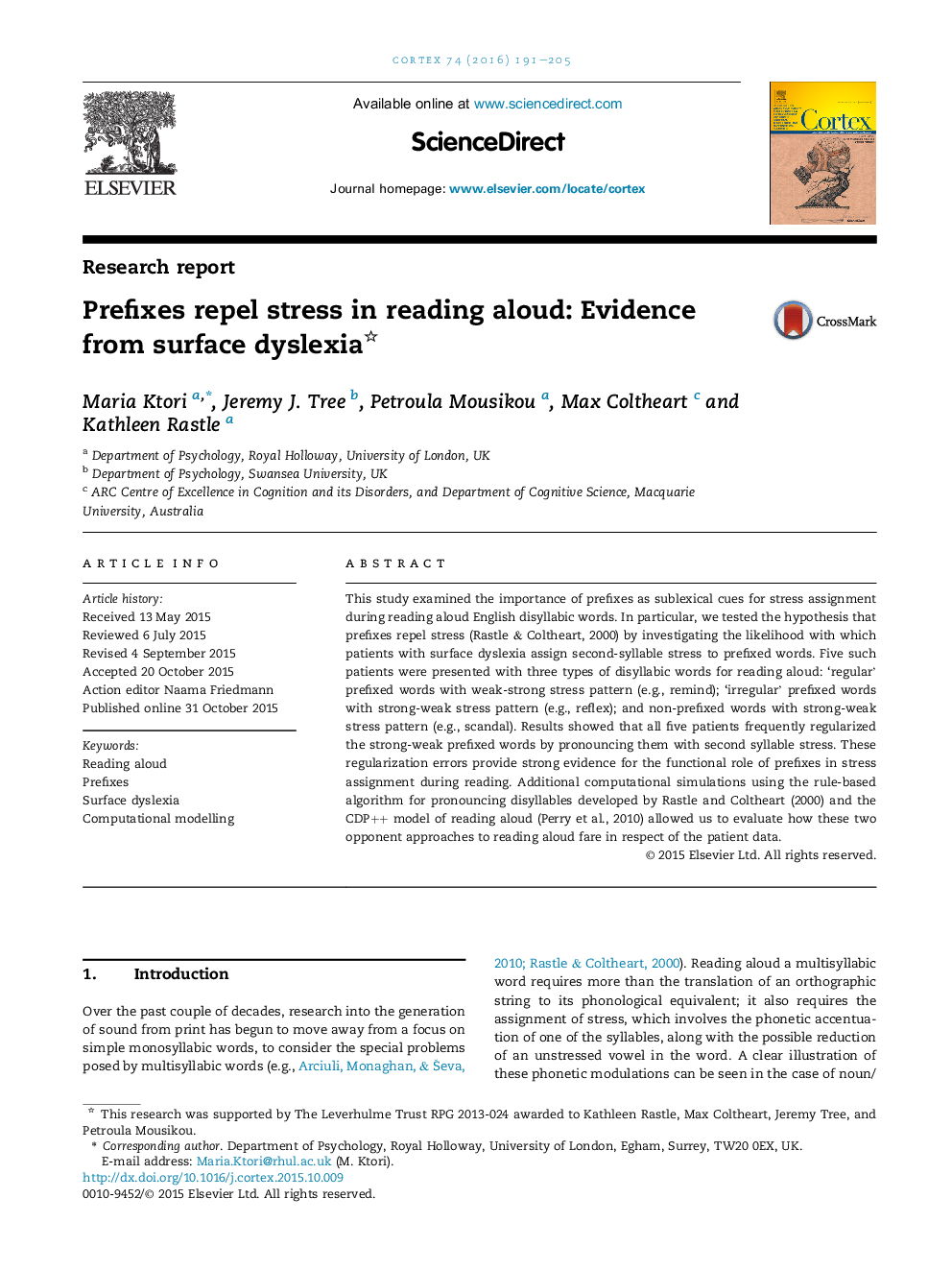| Article ID | Journal | Published Year | Pages | File Type |
|---|---|---|---|---|
| 7313627 | Cortex | 2016 | 15 Pages |
Abstract
This study examined the importance of prefixes as sublexical cues for stress assignment during reading aloud English disyllabic words. In particular, we tested the hypothesis that prefixes repel stress (Rastle & Coltheart, 2000) by investigating the likelihood with which patients with surface dyslexia assign second-syllable stress to prefixed words. Five such patients were presented with three types of disyllabic words for reading aloud: 'regular' prefixed words with weak-strong stress pattern (e.g., remind); 'irregular' prefixed words with strong-weak stress pattern (e.g., reflex); and non-prefixed words with strong-weak stress pattern (e.g., scandal). Results showed that all five patients frequently regularized the strong-weak prefixed words by pronouncing them with second syllable stress. These regularization errors provide strong evidence for the functional role of prefixes in stress assignment during reading. Additional computational simulations using the rule-based algorithm for pronouncing disyllables developed by Rastle and Coltheart (2000) and the CDP++ model of reading aloud (Perry et al., 2010) allowed us to evaluate how these two opponent approaches to reading aloud fare in respect of the patient data.
Related Topics
Life Sciences
Neuroscience
Behavioral Neuroscience
Authors
Maria Ktori, Jeremy J. Tree, Petroula Mousikou, Max Coltheart, Kathleen Rastle,
